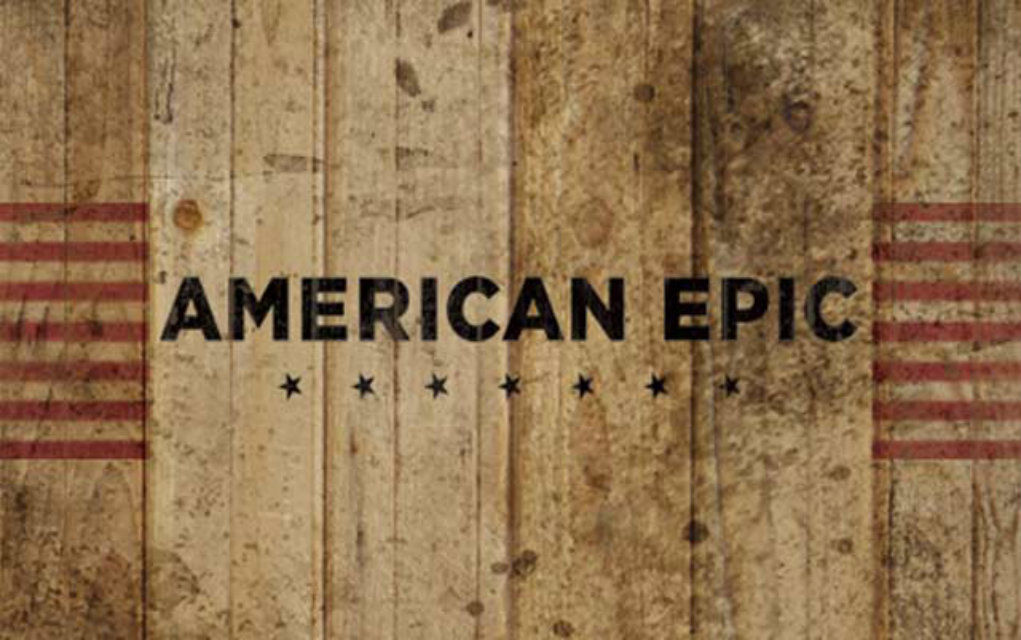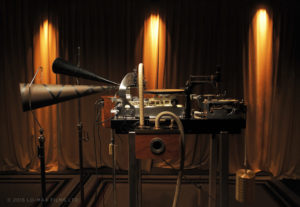The companion film, The American Epic Sessions, showcases an all-star roster of contemporary artists, led by Jack White, and T Bone Burnett, replicating this early recording process on an original 1920s electrical recording system and paying tribute to those great artists of the past.
The three-part historical documentary, American Epic, will air on PBS on Tuesdays, May 16th, 23rd, and 30th. The award winning film, The American Epic Sessions, will air on Tuesday, June 6th. Both will also air in the UK, on the BBC.
In the 1920s, as radio took over the pop music business, record companies were forced to leave their studios in major cities in search of new styles and markets. Ranging the mountains, prairies, rural villages, and urban ghettos of America, they discovered a wealth of unexpected talent. The recordings they made of all the ethnic groups of America democratized the nation and gave a voice to everyone. Country singers in the Appalachians, Blues guitarists in the Mississippi Delta, Gospel preachers across the south, Cajun fiddlers in Louisiana, Tejano groups from the Texas/Mexico border, Native American drummers in Arizona, and Hawaiian musicians were all recorded. For the first time, a woman picking cotton in Mississippi, a coal miner in Virginia or a tobacco farmer in Tennessee could have their thoughts and feelings heard on records played in living rooms across the country. It was the first time America heard itself.
Virtually no documentation of these extraordinary events survives and nearly ninety percent of the recording masters have been destroyed. A vital part of American cultural history has been lost.
The producers, director, and audio engineer, Nicholas Bergh, undertook a ten-year odyssey. They tracked down countless, long forgotten musicians, restoring the music that they recorded and reassembling the technology that created it. Along the way they brought some of the most important figures in contemporary culture to help them on their quest. Executive Producers White, Burnett and Robert Redford have lent their support to what Redford calls “America’s greatest untold story.”
Bergh has reassembled this 1920s recording system from original parts and it is now the only one left in the world. The system consists of a single microphone, a towering six-foot amplifier rack, and a live record-cutting lathe, powered by a weight-driven pulley system of clockwork gears. The musicians have roughly three minutes to record their song direct to disc before the weight hits the floor. In the 20s, they called this, “catching lightning in a bottle.”
Original songs, first recorded by artists including Charley Patton, Blind Willie Johnson, The Carter Family, Memphis Jug Band, Mississippi John Hurt, and many more, are covered by some of today’s brightest artists. Alabama Shakes, The Americans, Ana Gabriel, Ashley Monroe, The Avett Brothers, Beck, Bettye LaVette, Bobby Ingano, Elton John, Frank Fairfield, Jerron “Blind Boy” Paxton, Los Lobos, Lost Bayou Ramblers, Nas, Pokey LaFarge, Raphael Saadiq, Rhiannon Giddens, Steve Martin and Edie Brickell, Taj Mahal, Jack White, and, Willie Nelson and Merle Haggard are all recorded with this vintage technology.
White said, “In American Epic, we can examine how important the fact is that when phonograph records were invented, for the first time ever, women, minorities, poor rural men and even children were given the opportunity to say whatever they wanted in song, for the whole world to hear, shockingly without much censorship.”
Nas, who records the Memphis Jug Band’s 1928 song, “On the Road Again,” said, “When you hear me saying it, you might think I wrote it, because it sounds like something today. These guys are talking about carrying guns, shooting something, protecting their honor, chasing after some woman who’s done them dirty…it’s the same as rap music today, so it just tells you something about American culture, American music…It didn’t start with hip hop, it started a long time ago. It started with America.”
“This is the story of a profound act of democracy – when the poorest people in our country were recorded and their stories, their songs, and their voices broadcast around the world,” added Burnett. “These early pioneers set a course that led to the extraordinary library of Jazz, Blues, Country, Bluegrass, Rock and Roll, and Hip Hop that is Our Music. This is the story of the United States – a kid leaves home with nothing but a song and conquers the world.”
Taj Mahal said about recording for The American Epic Sessions, “To be back at the front of the recording industry is incredible. The same machines my heroes and mentors have played on, and that this industry got jump-started from? I’d certainly like to be a part of that. As far as I’m concerned it’s the sound, and I don’t think you can get any better than vinyl. You can get clean, pristine, but you can’t get that juice.”
American Epic will be available on Blu-ray and DVD on June 13th, from PBS Distribution. The companion soundtrack, 100-song box set, and other music products will be released by Legacy Recordings, Columbia Records, and Third Man Records on May 12th.
American Epic
PBS
BBC
Third Man Records



